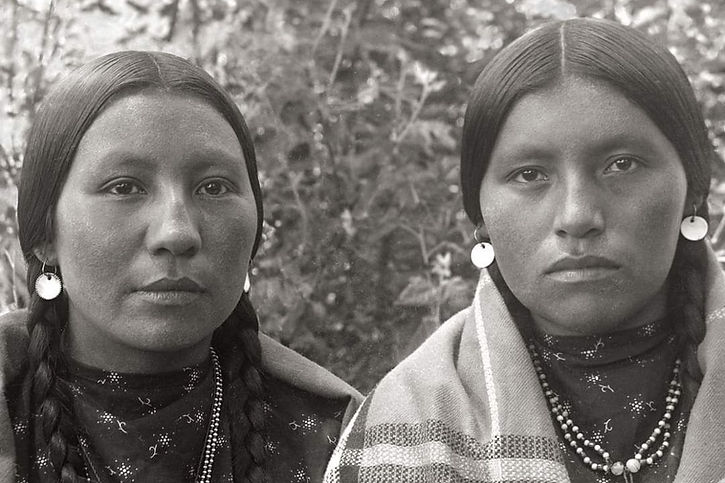
WE ARE NOT YOUR SAVAGES is about how the "myth of the American frontier" and its past and contemporary iterations in American film, photography, history, politics, and popular culture contribute to the marginalization of Native American people in Montana, create division among its citizens, and pose a threat to its fragile ecosystems.

Apsáalooke (Crow/Absaroke) people and Coulson (what is today Billings, Montana) residents at the Headquarters General Store. Circa 1885.
THE MYTH OF THE AMERICAN FRONTIER
LAUREN HUNLEY
Lauren Hunley is a non-Native community historian at the Western Heritage Center in Billings, Montana. Lauren discusses why she believes the mythology of the American frontier is still so pervasive today in Montana. Later in the interview, Lauren talks about the challenges she faces as a community historian trying to educate a community that is still deeply invested in the mythos surrounding the West. Historical imagery without Native American perspectives, she argues, is partly why.
TERRY L. ANDERSON
Terry is a Senior Fellow at the Hoover Institution at Stanford and head of Hoover's Project on Renewing Indigenous Economies. Terry discusses the vital importance of true Indigenous sovereignty for Native American tribes, which includes tribes having ownership of Indian land and exercising their rights to build infrastructure and operate tribal businesses on reservations. What is keeping some tribes from being economically prosperous like they were pre-European contact? The US federal government's archaic (and wildly inaccurate) belief that Indians are not capable and competent enough to govern themselves, manage their lands, and handle their own affairs -- a belief, Terry argues, rooted in 19th-century American mythology.

Apsáalooke (Crow/Absaroke) Women, Whistler and Hits-The-One-Who-Rides-the-Gray-Horse. Circa 1898-1910. Photo by Fred. E. Miller.
WE ARE NOT YOUR SAVAGES asks: How can Native American art, oral and visual histories, traditional values, and environmentally sustainable cultural and economic practices work to deconstruct the myth of the American frontier and offer a new (Indigenous) perspective on the American West that encourages its inhabitants to embrace cosmologies centered on respect for each other and the planet?
FEATURING
PHOTOGRAPHY









WE ARE NOT YOUR SAVAGES
has been supported by





